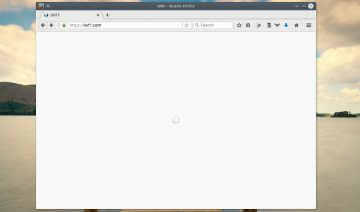Don’t let the technical terminology confuse you, although moving from 0.8.8 to 0.9.0 seems as yet another small step in a series of such, feature-wise, it’s a pretty big one.
In this release, a couple of new features were added such as a new Plaintext editor (similar to Gedit, Kate and Notepad) and also, more significantly is the aforementioned compositing capability.
So what exactly is compositing and why is it so significant?
Well, in layman’s terms, you may say composting is what distinguishes kids from adults, or, in this case, plain window managers from the more complex ones.
It’s a feature all modern desktop environments has, and it’s the key feature behind many of the visual effects we’ve all grown to like.
If you ever had a chance to use Compiz window manager, you’ll probably know to appreciate compositing a lot – it’s the main drive behind its special effects such as the fire effect.
But besides cool effects what else is compositing in charge of?
How about interface look and feel – drop shadows, live previews, complex animation, translating windows into one of a number of displays and virtual desktops – all done through compositing.
So as you can see, compositing is indeed a grand improvement, and in order to achieve that, Lumina is utilizing a venerable tool called “xcompmgr”.
For the time being, it will provide the low-level windows transparency effect, though it’s not unlikely that in the future it’ll bring much more to the table.
Nevertheless, people with low specs machines do not need to worry about Lumina becoming too robust or a resource hog because of the new feature.
“If this tool [xcompmgr] is not installed on the system, Lumina will still function perfectly fine without any compositing effects.”
Says Ken Moore – Lumina’s lead developer.
Download & Install
You don’t have to be a BSD user in order to give Lumina a shot!
Lumina is available on a number of Linux distributions, among them are: Arch, Debian, Ubuntu, Gentoo and others.
Click “Get Lumina” to see on which distributions it’s available and how to install.









